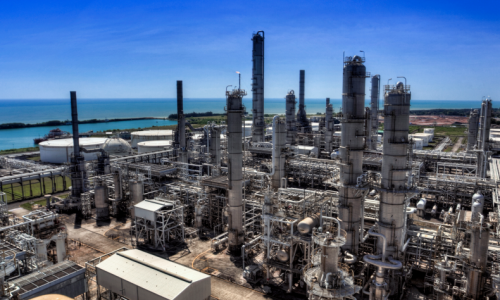Jakarta is developing an electric vehicle (EV) charging station in Setiabudi district, South Jakarta. The project, supported by the Investment Coordinating Board (BKPM), began in 2021 and worth IDR 67.32 billion. It will add to the existing 63 charging stations throughout the capital as well as providing better access for EV users.
Jakarta is the capital of Indonesia and is the largest city in the country and in Southeast Asia. The metropolitan is the heartbeat of the economy, politics and culture. The capital recorded a population of 10,609,681 in mid-2021. Jakarta extends over 664.01 square kilometers (sqm) whereas the Greater Jakarta – covering cities of Bogor, Depok, Tangerang, South Tangerang and Bekasi – covers 9,957.08 sqm. A total population of the Greater Jakarta was around 35 million in 2021, which made it the second largest urban area after Tokyo. Jakarta also ranks first in the highest human development index in Indonesia. While in business, it gives the largest opportunities with the ability to give a potentially higher standard of living.
Founded in 1973, the BKPM is a government institution dealing with investment projects and is responsible for implementing policy and coordinating investment projects in Indonesia. Investment Minister Bahlil Lahadalia has chaired the board since 2021.
Opportunities in EV
Jakarta is continuing to develop a new EV charging station (SPKLU), which was first established in 2021. The project investment is worth IDR 67.32 billion with an interest return rate (IRR) of 10.65%, a net present value (NPV) of IDR 21.63 billion and a payback period of 10.17 years.
The project develops the supporting infrastructure for future electric vehicles in Jakarta. The charging station is one of the national strategic projects (PSN) in the EV sector. The new charging station will be in the Rasuna Epicentrum area, Setiabudi district, or west of the Wave Apartment, with an area of 1,900 square meters. The facility will also function as a battery charging station service for EVs.
The government will provide an incentive in the form of an import facility to business actors who carry out business activities in the industrial sector that produce goods and/or services.
On the other hand, the government shows support for the development of EVs in Indonesia and tries to transition itself from fossil fuel vehicles to electric vehicles. Through its state-owned electricity company PT PLN, Indonesia keeps providing SPKLU facilities in Jakarta.
“Over the years, the number of our SPKLU will continue to increase to support electric vehicle ecosystem,” said PLN President Director Darmawan Prasodjo on March 28, 2022.
According to him, there were 12,811 units of EV by December 2021. PLN is also building public electric vehicle battery charging stations (SPBKLU) to encourage the public to use EVs.
The total amount of SPKLU is over 267 units in 195 locations in Java island by February 2022. Meanwhile, SPKLU owned by PLN has 120 units in 92 locations.
Prasodjo also stated that the PLN would give more incentives and add more charging energy discounts to every EV owner and a 30% discount on home electricity used at night.
The government targets around 13 million units of electric motorcycle conversions by 2030. It aims to attract the interest of the population to increase the growth of the independent electric vehicle industry.
Obstacles in charging station facilities
There are two main reasons for the challenges in building charging stations in Jakarta. Firstly, Jakarta is notorious for its gridlocked traffic due to the huge number of private vehicles. Secondly, even when EV started to come into the country 2021, Jakarta does not have many charging stations.
According to Statistics Indonesia (BPS), Indonesia had a population of over 270 million by 2020. Meanwhile, the number of vehicles reached 149 million units by 2022 according to National Police Traffic Corps (Korlantas). Jakarta itself has over 20 million vehicles, according to Gridoto.com.
“What happened to 13 million motorcycles and 3 million cars [in Jakarta]? With a total of 16 million motorized vehicles and 11 million inhabitants, Jakarta’s size is only 600 square kilometers. What will happen? It’s congestion that we usually see in Jakarta,” Jakarta Governor Anies Baswedan said on April 8, 2022, as quoted by CNN.
Jakarta Police Traffic Corps Deputy Director Adj. Sr. Comr. Rusdy Pramana Suryanagara said the number of vehicles passing through the Greater Jakarta area reached 22 million units per day.
Meanwhile, Indonesia has a limited number of charging stations for EV vehicles. In 2021 alone, there were only 122 units of charging stations, according to the Ministry of Energy and Mineral Resources (ESDM). Katadata.co.id reported that there were over 2.7 million EVs and they would need at least 170,000 charging stations.









